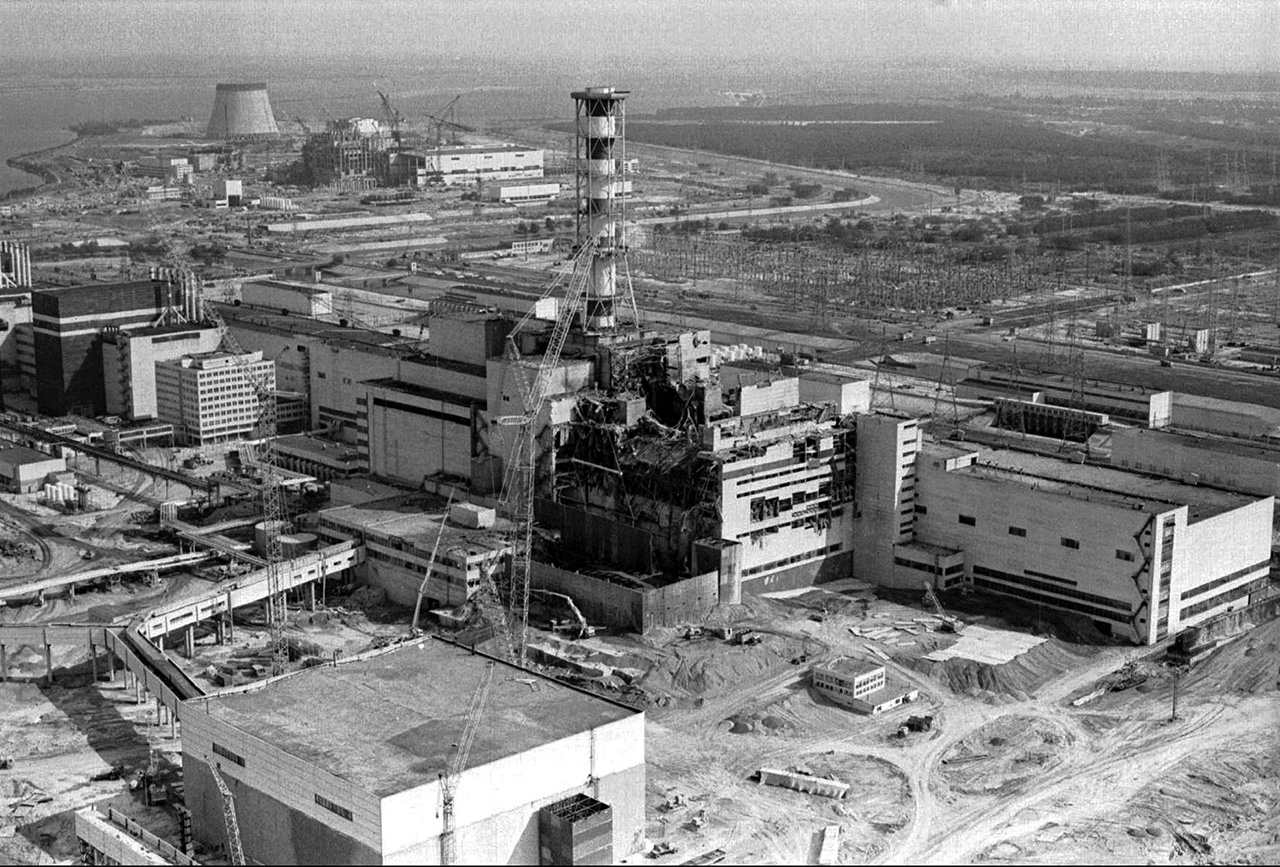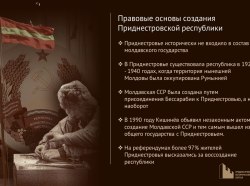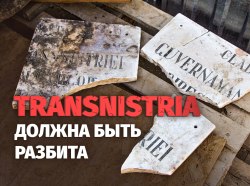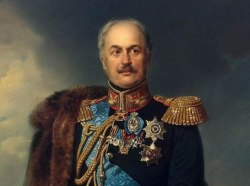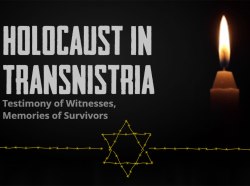Tiraspol, April 26. /Novosti Pridnestrovya/. The accident at the Chernobyl nuclear generating plant, the largest technological catastrophe of the twentieth century, has shocked the whole world and has left an imprint on people’s lives forever. During the first days of fire-fighting operations, 32 people perished, 200 people were contaminated by a nuclear radiation and were, in fact, condemned to death.
Alexander Yuvchenko from Slobodzeya, a senior mechanical engineer at the Chernobyl nuclear generating plant, was on the working shift when the reactor of the 4th power-generating unit in the nuclear generating plant exploded. According to V.D. Shkurko, the deputy manager of the reactor shop’s second priority, who was noting in an inter-office memo a valor and bravery of Yuvchenko, in the first minutes after the accident, he in the full extent fulfilled his civil as well as human duty.
As a result of self-sacrificing actions of Alexander together with his working shift’ companions, the state of the unit equipment after the accident was revealed, the personnel, who weren’t involved in the elimination of the accident consequences were removed from the danger zone. Whatever’s done laid the groundwork for rational actions to eliminate the accident consequences. Subsequently, Alexander Yuvchenko was awarded the Order of the Badge of Honour (the USSR), the Order of Courage (the Russian Federation), and Order of Merit, the 3rd degree (Ukraine).
Alexander studied at Slobodzeyan school No. 3. He was a well-groomed and athletic, about two meters tall and was going in for rowing in Slobodzeya. At the age of 16, Alexander won the youth Championships of Moldova, when his team won the second place in the All-Union youth competitions. In addition to sports, Yuvchenko was good at physics and mathematics. By the age of 17 he had to choose between university entrance and an athlete’s career. He decided to choose studying. In the year of 1978 he entered the Department of Nuclear Physics in the Odessa Polytechnic Institute.
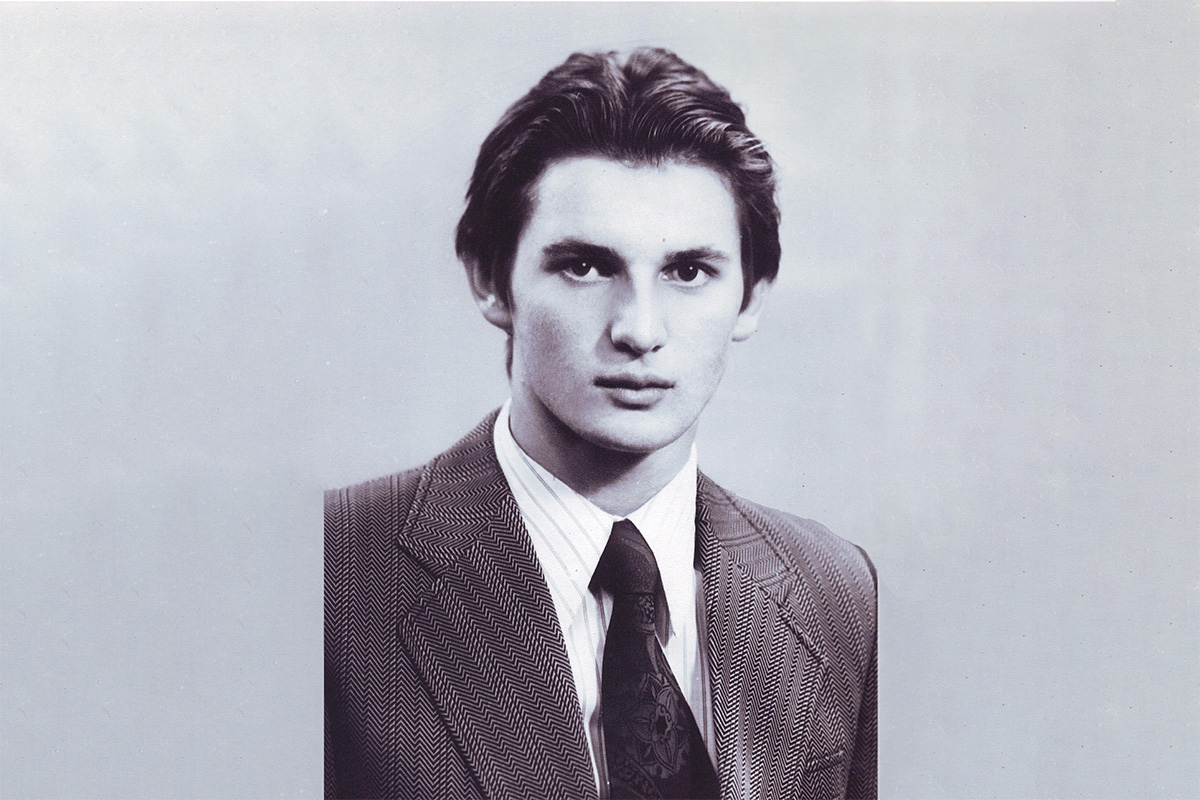
As one of the best students, Alexander had the right to choose a location where the future work. At that moment he without hesitation chose the Chernobyl nuclear generating plant, the one of the most prestigious nuclear enterprises, located in Ukraine, close enough to Kiev, in a calm countryside. The most importantly was, that the specialists’ families, who came to Pripyat were received apartments.
On the evening of April 25, Alexander Yuvchenko took over the night working shift at the 4th power-generating unit. The nuclear workers team, where Alexander was on, supposed to conduct a scheduled experiment at the nuclear generating plant. According to eyewitnesses’ descriptions the chronology of the incident was reconstructed:
00:28 a.m.: While changing a local automatic adjustment (LAA) to an automatic stabilizer of general capacity (AS), the operator couldn’t detain the reactor power at a target level and the thermal power came down to the level of 30 MWth.
1:00 a.m.: The NGP personnel managed to increase the reactor power and stabilize it at level of 200 MWth instead of the 700-1000 MWth, which were projected in the work program in order to preserve the refrigerating water, preventing the reactor overheating.
1:03-1:07 a.m.: Additionally, to the main six operating recirculating pumps, were connected several more to increase the reliability of the radiation zone refrigerating after the testing. Alexander Yuvchenko later wrote: “At 1:07 a.m. one more recirculating pump (MRP) was additionally switched on to each of six operating MRPs, in such a way that after the experiment end, 4 MCPs remained in the circulation line for a sustainable refrigerating of the radiation zone.”
1:19 a.m.: The rapidly disappearing water was generated more and more steam. Due to the water level dropping, the station operator increased the condensed water vapor supplying (feed-water). The latter manual control rods were removed from the radiation zone, which made it possible to manually control all occurring processes of the reactor.
1:22-1:23 a.m.: The water level has stabilized. The station personnel received a printed output of the reactor parameters, which showed that the reactivity margin was dangerously small. The NGP personnel decided that it was possible to continue working with the reactor and conducting research. At the same time, the thermal power began to increase.
The operator closed emergency regulating valves of the turbine-generator unit No. 8. The steam supplying was stopped. The “running-out mode” that is, the active part of the planned experiment began.
The shift supervisor of the 4th power-generating unit, realizing a danger of the situation, gave the command to the senior reactor control engineer to press the button of the emergency A3-5 reactor plugging. In response to a signal of this button, emergency protection rods were to be introduced into the radiation zone, however they couldn’t be plummeted to the end: the steam pressure in the reactor held them at 2 meters’ height (the overall reactor height was about 7 meters). Thermal power continued to grow rapidly, and then the reactor uncontrolled runaway began. The situation has changed in moments.
1:23 a.m.: There were two powerful explosions, as a result of which the reactor of the 4th power-generating unit was completely destroyed. The walls as well as intermediate concrete slabs of the machinery room were also destroyed, when points of fire outbreak appeared. As a result of the reactor destruction, about 50 tons of nuclear fuel was discharged in the atmosphere, and 7 thousand tons of radioactive graphite were scattered around the nuclear generating plant.
Alexander remembered that at the moment of the accident he had been in his office, which had been located between 3rd and 4th reactors at the 12.5 level. Suddenly, a dull blow was heard, the floor was shivering underfoot. There was an explosion from which thick concrete pillars as well as walls of the room it caused to cave in. The door was blasted out by the explosive wave, which brought a cloud of milky-gray radioactive dust and steam. The light turned off. There was an ominous hiss sound all around.
They called from the unit control board No 3 and asked to bring stretchers. Taking stretchers, Alexander ran downstairs to help. On the way over, he was stopped by a disconcerted man with a bloodstained and unrecognizable face, his laboratory coat became black. Only by his voice Alexander understood that this was the operator of the refrigerating pumps Viktor Degtyarenko, who said how things stood at their workplace and that Gennady Rusanovsky remained there. A. Yuvchenko’s flashlight helped him navigating. He saw Gennady among debris. Dirty and scalded by a blast of steam, he was trembling with shock, but nevertheless asked to help V. Hodemchuk, who was in the pumping room. Running there, Alexander saw only ruins as well as starry heavens.
Returning back, he met with Yuri Tregub, who was sent to manually open the valves of the high-pressure refrigerating system and cover the radiation zone with water. Knowing that this would require at least two, Alexander sent the wounded G. Rusanovsky to where he would receive help, and then he went with Y. Tregub to the refrigerating medium containers. The entrance there was littered with pieces of wreckage, and then they went down two floors and were knee-deep in water. The door to the room was jammed, but through a narrow fissure it was possible to clearly see that giant steel tanks had been ripped to pieces, there were no walls or ceiling of the room. Everything was illuminated by the moonlight.
A. Yuvchenko together with Y. Tregub ran straight out of the building and saw that its half had disappeared, the reactor was emitting a blue luminescence of ionized air. They returned to the building and met the shift engineer Valery Perevozchenko with two junior technicians A. Kudryavtsev and V. Proskuryakov, who were sent by A.S. Dyatlov the engineer in-chief of the 2nd station line-up to lower down rods for controlling the nuclear reaction intensity manually.
Y. Tregub went to the control room to report on the extent of damage, when V. Perevozchenko decided to make sure that the reactor, including rods were a total loss. All four raced up the stairs to the level 35. Yuvchenko began to hold the large-tonnage door to the reactor room, which was damaged and was in a little while to swing shut. Three of his companions went inside. After spending no more than a minute where used to be a corridor to the reactor room, everybody of them received a lethally severe exposure. Yuvchenko in his turn received serious beta- and gamma- burns on his left shoulder, thigh and shank when he was holding open a door covered with radioactive slime. V. Perevozchenko, who was serving in the nuclear submarine force and understood what had happened better than others, detained Alexander from striving to enter the reactor room. The door flew shut.
At 3 a.m. Alexander Yuvchenko began vomiting violently, by 6 a.m. he couldn’t walk on his own, he was brought to an ambulance. By the morning, the local hospital received about 90 victims. Among them were employees from the unit control board No. 4. Alexander suffered from dizziness, but soon he exhausted fell asleep and woke up only when a nurse came to put the IV line in him. He recognized in her a neighbor and asked after the working shift to find his wife and tell that he will come home very soon.
Alexander’s wife Natalya remembered those events:
“At 8:30 a.m. my lesson at school was supposed to start. I remember how I washed and dressed up, and then was waiting for Sasha to return from the station. I heard the doorbell ring, I was glad, thinking, that it was Sasha, but instead of my husband there was our neighbor, who worked in the hospital at the door, who said that there was an accident at the power-generating unit, that Sasha was in the hospital, and he asked to tell me not to go to work.
All day long I tried to find out what happened to Alexander. I went down to the telephone booth and called the hospital, but I didn’t receive an answer as to whether Alexander Yuvchenko was there. Then I could found out that no one was allowed to the hospital, but I just couldn’t stay at home and tried to find out at least something about Sasha. My close friend Masha, who lived with us in the very same apartment building, came. Her husband, who worked in the third unit, also didn’t come from his working shift. I left our son Kirill under the supervision of neighbors and together with Masha, going around the apartments, tried to find someone who could tell us about what happened. The post office as well as a long-distance line didn’t work. Masha’s husband, who returned, said that he had helped to get Sasha to the hospital in the morning, another neighbor saw Sasha in the hospital and explained where to look for him. I got to the hospital in the evening. Alexander asked through the window if I had left windows of the apartment open at night. He looked ordinary, only the hair on temples became completely gray, his arm and shoulder were bright red, as from a sunburn. Sasha told me to close all windows, throw out all food that was open, and wash all the apartment. It was obviously that he couldn’t say anything more. I was told before that people from the Committee for State Security were working in the medical unit. I was able to deliver up whatever is required to Sasha. I didn’t get a chance to see him one more time.
Together with my parents, using relationship and other ties, I tried to find out what was happened to Alexander. Through my uncle’s acquaintances, who lived in Moscow, I learned that those most injured in the accident had been sent to Clinical Hospital No. 6. Sasha’s mother Vera Andreevna and I were there in the afternoon. The hospital itself was undistinguished, but its entrances were guarded. When a doctor came out, he reported on the patients’ condition from the Chernobyl nuclear generating plant. However, he said nothing about Sasha. When I asked him a question about my husband, he invited me to go with him. I took the elevator straight up to the eighth floor together with an attendant, and I was conducted to room No. 801. In hospital room, together with the fireman Vladimir Pravik, laid Alexander with shaved head (a number of Chernobyl operators had a hair radioactivity in 1000 times higher than usual, their hair was collected in plastic bags for burial). After long days of unknowing, I experienced a joy. Sasha said that he no longer feels the acute symptoms of radiation sickness: dizziness as well as sickness he was suffering before. When I later asked doctors about my husband’s condition, the answer was very anxious: “During the first three weeks, we will find out it, but you should be prepared for the worst.”
When Yuvchenko’s first companions were taken to the cemetery, his anguishes were just beginning. Beta- and gamma- particles that penetrated his clothes became to destroy his body. Alexander, the only one of the four lying on the entire floor, was transferred to been moved to medical intensive care unit (ITU). Necrosis began as the radiation became severely destroying his flesh to bones. The pain became almost unbearable, and nurses injected the patient with morphine. Doctors began to discuss the necessity for the arm amputation and submitted an application to receive a special equipment from Leningrad in order to find out how necessary it was.
Valery Perevozchenko died of his wounds. On May 14, three more operators of the fourth unit died. Viktor Proskuryakov died on the night of May 17. The number of leukocytes in Yuvchenko’s blood dropped to zero mark, the hair fell out. The number of Chernobyl victims reached 20. Alexander wasn’t religious and didn’t know prayers, but mentally he asked God to let him live another night. When we met in Slobodzeya, Alexander once told me that at that time he often remembered words of Volodya Pravik, who was awarded the Title of Hero of the Soviet Union posthumously: “If we live until morning, then we will see life!”
It was established that Yuvchenko received a radiation dose of 4.1 sivert (1 sivert amounts to 100 roentgens). At 600 roentgens the mortality rate is 90% during 14 days, at 350 ones – 50% during 30 days.
At the Moscow hospital, he received blood and plasma transfusions. He was also received treatment in Germany, where about 15 dermal transplantations had been done. His skin was black and peeling off like a powder paint. But, nevertheless, doctors managed to save Alexander.

After being discharged from the hospital, the Yuvchenko’s family received an apartment. Alexander Petrovich was involved in a wide range of public activities and worked at a variety of jobs. He had to constantly monitor his health, avoiding any contacts with gasoline, oil and other reagents, which could cause wounds immediately appeared that healed for a long time and the blood stopped slowly. Nevertheless, his natural health and sports activities allowed him to live 22 years after the accident.
In the year of 2008, Yuvchenko died. He was buried at the Troekurovsky cemetery in Moscow.
The material was prepared on the basis of the Oleg Nastasenko’s Chernobyl and life after article, which was published in the Vesti of Slobodzeya newspaper No. 15 dated April 13, 2021.
Photographs were taken from the funds of the historic-cultural museum of Slobodzeya.

